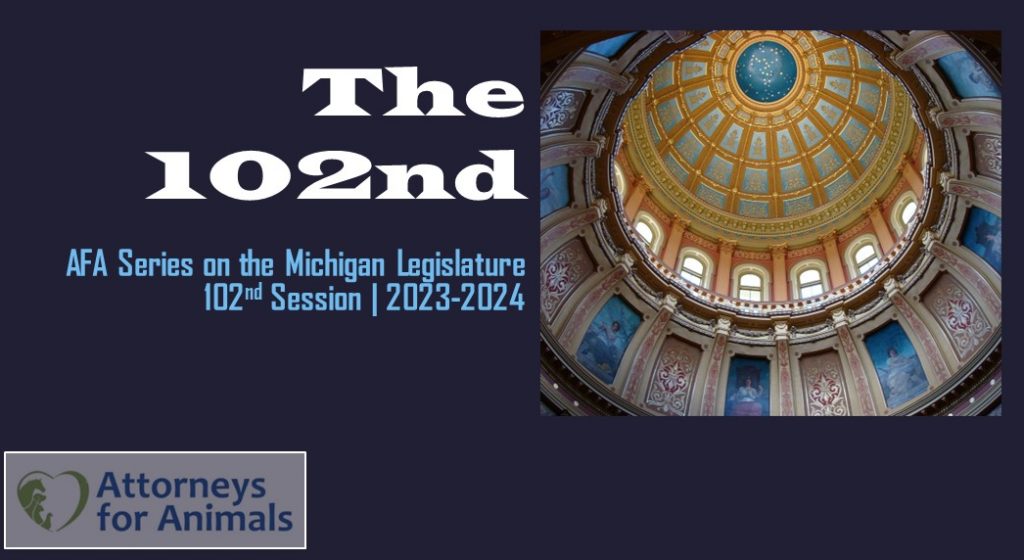
This June, Tribal Citizens representing Little Traverese Bay Bands of Odawa Indians, Sault Ste. Marie Tribe of Chippewa Indians, and the Keewenaw Bay Indian Community were invited to the House and Senate Natural Resources Committees to discuss Traditional Ecological Knowledge and their perspectives on our relationships with wildlife and nature.
It represents an important first step by legislators to understand and elevate an alternative way of approaching the issues that the committees will be considering during the 102nd session.
This is a big deal. Read on to find out one outcome of the presentations.
Readers of this blog and even casual obervers of #MILeg know how important Senate and House committees are to the legislative process. They are the place where bills can move toward passage, or where they can languish and die.
Legislative committees publish an agenda in advance of meetings listing bills that will be considered. This allows interested parties to submit tstimony. However, on occasion the agenda will include presentations by people or organizations who are invited to the meeting. The purpose is to educate committee members and get them up-to-speed on issues that will come before the committee during the session.
Often these presentations occur during the first few months of the session and are given by government agencies: a Michigan Department of Agriculture and Rural Development representative appears before the Agriculture Committee. The Department of Natural Resources sends an employee to the Natural Resources Committee. Certain well established NGOs may receive invitations. Earlier this year, the House Agriculture Committee heard from the Farm Bureau, and the House Natural Resources Committee heard from the Michigan United Conservation Clubs.
It’s considered a sign that your organization has arrived — or is important in Lansing — if you are invited to present. It’s an opportunity to lay out your legislative agenda for the session and to establish relationships with legislators. It certainly enhances your organization’s credibility.
You might be interested to know what happened within weeks of these presentations. At the end of June, the “Michigan Indigenous Culture and Heritage Package” was introduced by six House members. Also announced are plans for the first powwow celebration on the capitol lawn, as well as a lobby day urging legislators to support the bill package and future legislation.
Nichole Biber, PhD, of the Anishinaabek Caucus spoke at both committee meetings. She will be the guest at AFA’s Lunch + Legislation on Monday, August 7, to talk about “Advancing Tribal Citizens’ Interests through Policy and Advocacy.” Please join us on FaceBook Live at noon.
